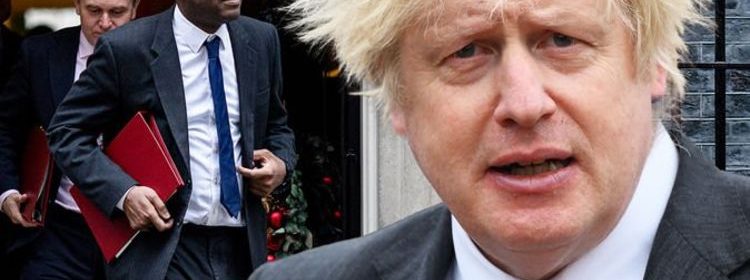Brexit Britain breaks free: New rules come in to protect UK firms from foreign takeovers

Kay Burley grills Kwasi Kwarteng on his relationship with Sunak
We use your sign-up to provide content in ways you’ve consented to and to improve our understanding of you. This may include adverts from us and 3rd parties based on our understanding. You can unsubscribe at any time. More info
The move has been warmly welcomed by David Jones, deputy chairman of the European Research Group (ERG), who said the “sensible” regulations were definitely needed in the current climate, with UK companies vulnerable to “predatory foreign entities”. The National Security and Investment Act is widely regarded as the biggest shake-up of the UK’s national security regime for 20 years and will permit ministers to scrutinise approaches by overseas interests much more closely.
The Government will also be able to impose certain conditions on a takeover or block it – although ministers were keen to stress this will happen rarely.
Mr Kwarteng said: “The UK is world-renowned as an attractive place to invest but we have always been clear that we will not hesitate to step in where necessary to protect our national security.
“The new investment screening process in place from today is simple and quick, giving investors and firms the certainty they need to do business, and giving everyone in the UK the peace of mind that their security remains our number one priority.”


Ministers will also be able to unwind deals that have already taken place if false or misleading information was provided.
Foreign investors and businesses will have to notify the Government if they plan to buy any part of a UK business across 17 sensitive areas of the economy that could threaten national security, including artificial intelligence and nuclear energy services.
Plans for the new rules were first unveiled in November with Mr Kwarteng setting out the risk factors he will take into account.
JUST IN: EU torn apart for making Irish an official language – ‘Meaningless’

It will be enacted retrospectively to any deals made since November 12, 2020, and has already been cited by the Government over deals in the defence sector announced early last year.
Any deals scrutinised under the Enterprise Act 2002 and current investigations under the same act will continue under the previous rules and will not face investigations under the new legislation.
Mr Jones, the Tory MP for Clwyd West, told Express.co.uk the new legislation is “sensible”.
DON’T MISS
Sturgeon accelerates independence plot behind the scenes [SPOTLIGHT]
‘Very proud of it!’ Defiant Beaune hits back after EU flag fury [INSIGHT]
New rules from TODAY threaten to wreak havoc on UK [REVEALED]


He added: “There has been a lot of interest in British high tech companies from predatory foreign entities.
“It’s important that we make sure that essential national security interests are protected and the Act will ensure that happens.”
Guidance published on the Government’s website last year states: “The Government will be able to impose certain conditions on an acquisition.

“In rare instances, the Government may unwind or block an acquisition completely.”
The Act is administered by the Investment Security Unit within the Department for Business, Energy and Industrial Strategy (BEIS).
The decision-maker is Mr Kwarteng himself.

The statement added: “The Government can call in an acquisition for assessment if it reasonably suspects that it is a qualifying acquisition (this guidance explains what these are) that has given rise to, or may give rise to, a risk to national security.
“This applies whether the acquisition has been completed or is still in progress or contemplation.”
The 17 areas are advanced materials; advanced robotics, artificial intelligence, civil nuclear, communications, computing hardware, critical suppliers to government, cryptographic authentication, data infrastructure, defence, energy, military and dual-use, quantum technologies and satellite and space technologies.
Source: Read Full Article
